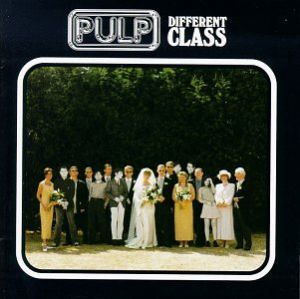
- Format: MP3

After years of obscurity, Pulp shot to stardom in Britain with 1994's His 'n' Hers. By the time Different Class was released at the end of October 1995, the band, particularly lead singer Jarvis Cocker, were genuine British superstars, with two number two singles and a triumphant last-minute performance at Glastonbury under their belts, as well as one tabloid scandal. On the heels of such excitement, anticipation for Different Class ran high, and not only does it deliver, it blows away all their previous albums, including the fine His 'n' Hers. Pulp don't stray from their signature formula at all — it's still grandly theatrical, synth-spiked pop with new wave and disco flourishes, but they have mastered it here. Not only are the melodies and hooks significantly catchier and more immediate, the music explores more territory. From the faux-show tune romp of the anthemic opener "Mis-Shapes" and the glitzy, gaudy stomp of "Disco 2000" (complete with a nicked riff from Laura Branigan's "Gloria") to the aching ballad "Underwear" and the startling sexual menace of "I Spy," Pulp construct a diverse, appealing album around the same basic sound. Similarly, Jarvis Cocker's lyrics take two themes, sex and social class, and explore a number of different avenues in bitingly clever ways. As well as perfectly capturing the behavior of his characters, Cocker grasps the nuances of language, creating a dense portrait of suburban and working-class life. All of his sex songs are compassionate, while the subtle satire of "Sorted for E's & Wizz" is affectionate, but the best moment on the album is the hit single "Common People," about a rich girl who gets off by slumming with the lower class. Coming from Cocker, who made secondhand clothes and music glamorous, the song is undeniably affecting and exciting, much like Different Class itself.